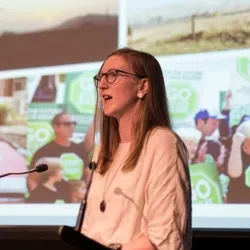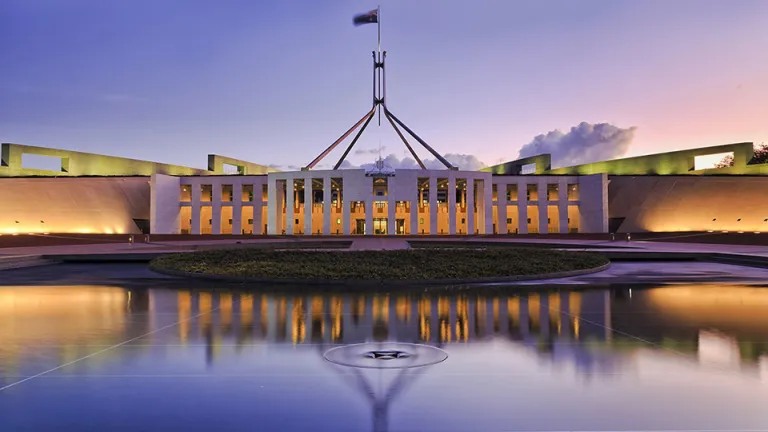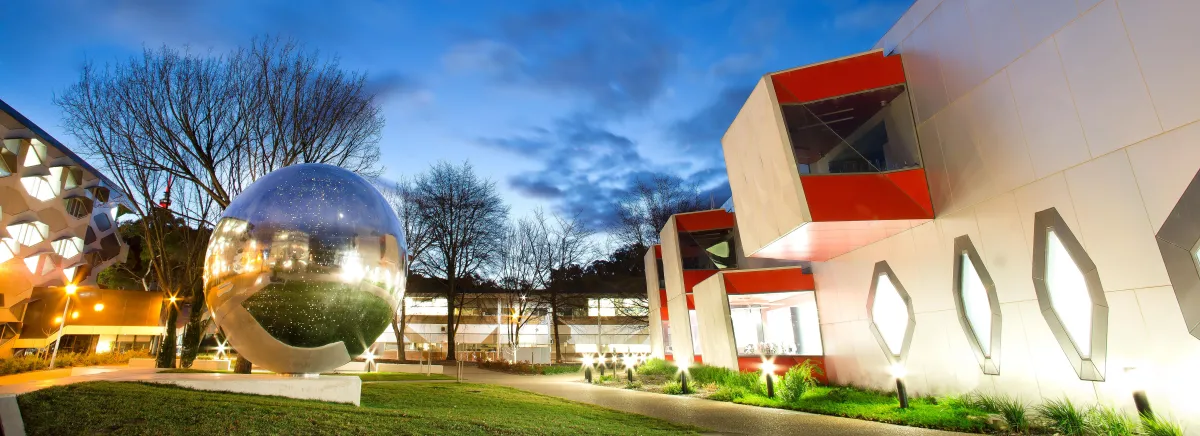
Master of Climate Change
Overview
Choosing a Master of Climate Change at Australia's national university equips you with the knowledge and understanding to tackle one of the world’s most vital challenges. It is the ideal degree if your current role intersects with climate issues and you are seeking to broaden and deepen your knowledge to move up to the next career level. And there is no better qualification if you are transitioning professionally and looking for a career change that enables you to make a real difference.
You will study core topics such as: domestic and international climate policy and economics; climate change science and policy including vulnerability and adaptation; and research methods for complex environmental problems and environmental management.
Choose from electives in climatology, ecological systems, sustainable development, resource management, economic approaches, law and engineering.
Key facts
- #1 for Natural Sciences (QS 2024) in Australia
- 1.5 years full time
- Semester 1 & 2 intake
- Cross-disciplinary learning
- Can be completed remotely
- #1 in Australia for graduate employability (Times Higher Education)
Testimonials

Quynh Trinh
“When I read the program structure, I was excited because this was what I was looking for. It provided me with core knowledge on environmental management and climate change, and the flexibility to design the learning in accordance with my preferred topic: the intersection between climate science and development.”

Chinthaka Jayasooriya
“I’m experiencing legends! Over the years, I’ve read many reports from the Intergovernmental Panel on Climate Change and now I can discuss climate change with some of the authors. These teachers are role models for me. It’s a dream come true!”
Careers
The Master of Climate Change offers practical solutions-based skills for professionals working across various sectors, including in industry, government agencies, NGOs and consultancies.
The program will boost your career in climate policy, climate change risk assessment, or adaptation and mitigation strategy development, as well as opening up new career paths for those looking to pivot their professional direction.
The Australian National University has been ranked as the top university for graduate employability in Australia in the Global University Employability Ranking 2023-24. As a student at ANU, you gain access to the ANU CareerHub – an online career development and employability tool that includes a jobs board and careers resources. You also have access to drop-in chats with a career consultant and to attend our career fairs to meet potential employers.
Below are some of the career outcomes of our alumni, highlighting the diverse paths they've taken since graduating from the Master of Climate Change*.
- Non Executive Director at Stanwell Corporation Limited
- Assistant Director at the Department of Climate Change, Energy, the Environment and Water
- Project Officer at GIZ Viet Nam
*Based on data from LinkedIn.
Learning experience
Fees & scholarships
Scholarships
If you are an Australian student enrolled the Master of Climate Change, you can apply for the Jennifer and Ian Prosser Scholarship, especially if you're from a remote, regional or rural background.
Key people

Professor Frank Jotzo

Frank has senior authorship roles with the Intergovernmental Panel on Climate Change. He leads research on topics including decarbonisation strategies, economics of energy transition and policy instruments for climate change and environment. He has advised national and state governments, international organisations and businesses.

Professor Nerilie Abram

Nerilie is a paleoclimate scientist, with research expertise covering natural climate variability and human-caused climate change impacts. She was a Coordinating Lead Author for the IPCC special report on the Ocean and Cryosphere in a Changing Climate.

Dr Rebecca Colvin

Bec's research interest is in how groups of people interact with each other. Recent research projects have included the study of conflict about wind energy development, the psychological underpinnings of a constructive governance regime for negative emissions, and the role of trust between climate researchers and policy-makers.

Professor Jamie Pittock

Jamie's research focusses on environmental governance, climate change adaptation, energy and sustainable management of water. Jamie manages a research projects on irrigation in Africa (Mozambique, Tanzania and Zimbabwe) and on energy and food in the Mekong region.
How to apply
Understand the how to apply steps
Visit the international postgraduate applications page to prepare for your application to ANU.
International postgraduate applicationsUnderstand the how to apply steps
Visit the domestic postgraduate applications page to prepare for your application to ANU.
Domestic postgraduate applications



